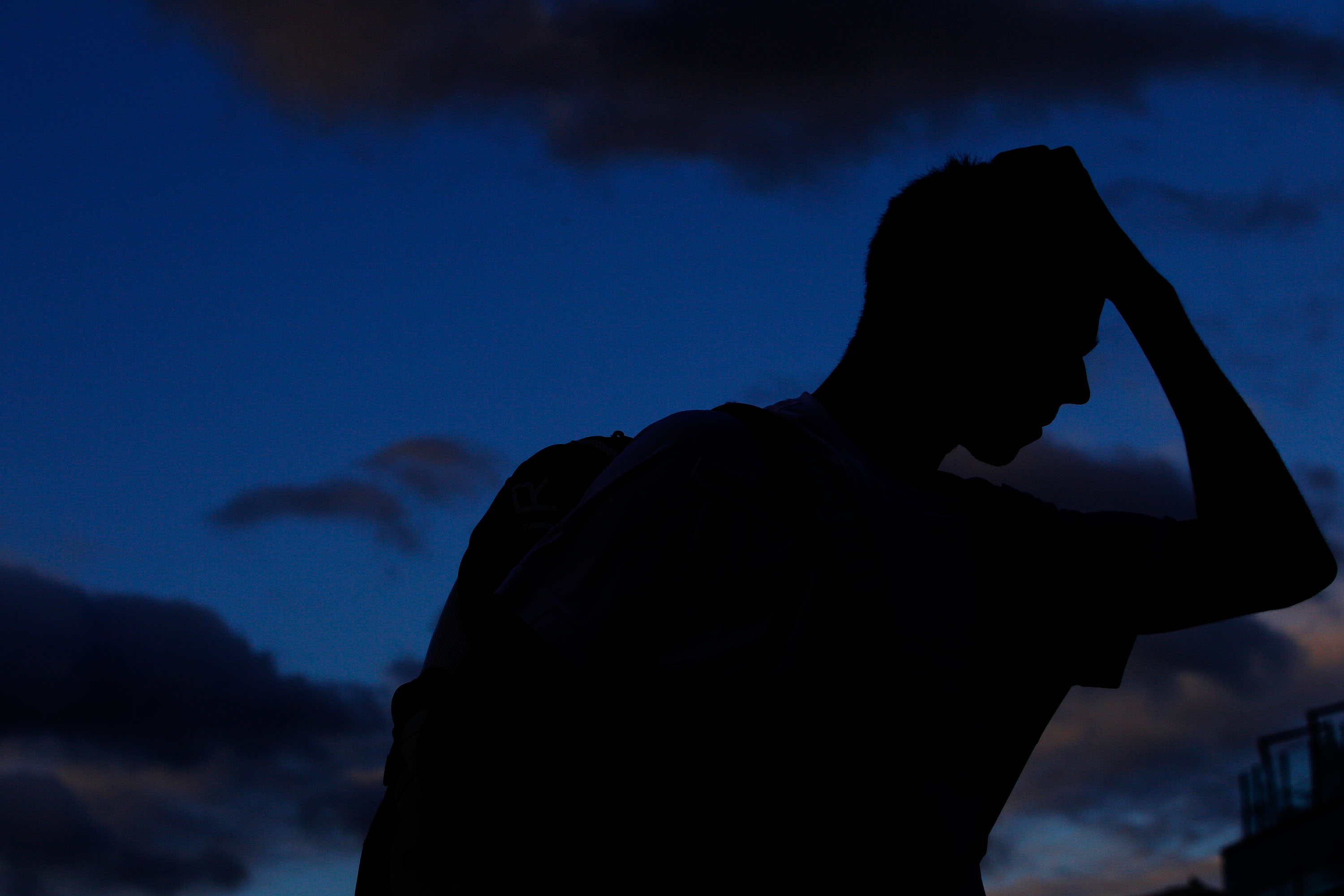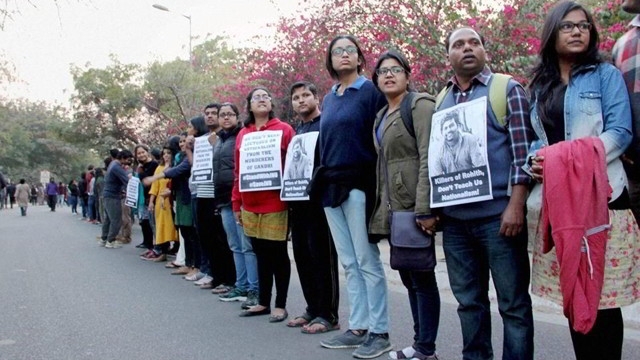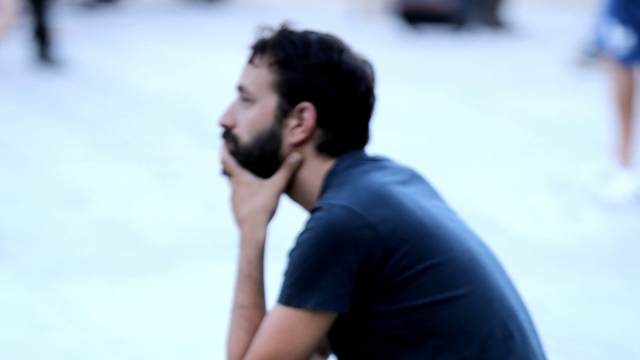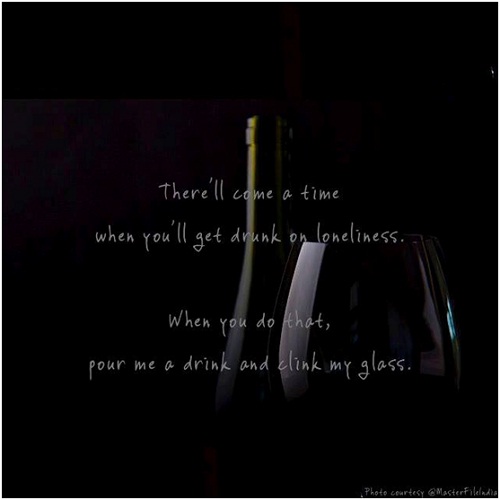
When I switch on the television, I can see the symptoms. There is a new epidemic in town and nobody seems to be talking about it. It came to the fore with the recent incidents in JNU and other events in the past few months.
There has always been a debate on the selfishness of human nature. Many believe that we tend to put our self-interest ahead of others. That is simply not true. Human beings progressed more than any other animal because of our skill in working with each other. We set goals, make plans, communicate our agenda and help each other achieve goals. Our survival and progress depend on being socially connected. If by commission or omission, you did something to break the acceptable social norm, you were explicitly or implicitly asked to leave.
Sometimes, in my career, I would make a decision erring on the side of aggression. During a strategic project discussion, someone remarked, “You sales guys never think of profit and shareholders”. Others around nodded and smirked. I mentally, and perhaps physically, shrank in my chair. I was socially isolated. Blood rushed to my cheeks, my body language changed. My opinions and aspirations did not seem to matter. Worse, I was labelled as someone who did not care for my organisation. I never felt more stereotyped and, what I have come to realise, lonely. Others from the sales team also felt lonely.

Getty
Psychologists and sociologists call it social isolation. My response was simple, primitive and ineffective. I wanted to lash out. I wanted to leave. I wanted justice. Obviously, my loneliness was aggravating and fuelling itself. It was almost surreal how one statement by a person, with the implicit support of others, had triggered a negative downward spiral.
I think that is what is what happened and perhaps continues to happen at JNU.
The events are rather obfuscated, but the symptoms stand out. For a few minutes, that you read this column, keep aside what was said or why was it said? I want to focus on the process. My interest is in constructing the emotional and cognitive spiral. What went in our brains? A very small group allegedly held an opinion, which was dramatically different from another group. The second group responded with righteousness and disgust.
Hardwired in our evolutionary roots, disgust is a useful emotion, which aids physical self-preservation. When our ancestors were about to consume something that was distasteful or poisonous, our sense would warn us and our body would expel it. That is whey we are squeamish when we smell a rancid odour or any extreme taste that might harm our body. When we smell a strong chilli powder, our mind knows that the system cannot digest the burning sensation of the chilli. It stops you from consuming the chilli. The same reaction takes place when we pass by a garbage dump. Our nose tells us, we should not breathe this smell and absolutely not consume anything.
Disgust is a negative emotion that helps us stay healthy.

Getty
When tribes started being formed, unassailable rules and norms were enshrined. Some were written and some unwritten. If anyone transgressed those norms, we would feel disgust towards that person. Our reaction would be to remove the person from the tribe. Imprisonment or exile was the worst form of punishment. Even in prisons, solitary confinement is said to be the harshest punishment. Our brains were hardwired to detect when social norms were being transgressed and immediately take corrective action. It was an invaluable tool for self-preservation.
Disgust manifests in thoughts, symbols, gestures, actions, suggestions, and statements. Our reaction is spontaneous— expulsion. We feel disgust when we witness something which violates your deep beliefs and values.
Therein was the genesis of loneliness.
In modern life, we started pushing away what we did not like or did not meet our standards of social norms. Slowly loneliness began manifesting in other aspects of our lives. The obese child invoked a sense of disgust. The awkward kid made us look uncool so we did not want to be associated with her. The colleague, who could not meet his production targets was ignored, or worse, singled out for rebuke and scorn. The person with dark skin was made to feel lonely. The person who didn’t know the etiquette of using a knife or a spoon was made to feel lonely. When sometimes, the discussion moves towards fine wine and single malts, my mind wanders off. I am pretty much out of the discussion.
Why is loneliness an impediment to making a connection?
Research clearly demonstrates that people who are lonelier are more at risk to hostile and harmful behaviours. When we are lonely, we become more hostile. Loneliness reduces the capabilities of executive function in the brain. It increases our blood pressure.
Lonely people have higher cortisol when they wake up in the morning. Your body is ready for a fight. When you are stressed you are more prone to impulsive reactions. The body is prepped to expect danger. Everything looks dangerous. Your body and mind are on high alert the entire day, looking for cues of danger. When we are lonely our minds are geared to detect negative clues. We interpret everything with a negative twist. You go through the entire day being stressed.
At the end of a long stressful day, your sleep is impaired. When your sleep is impaired, your body and mind are not refreshed. The toxins gathered through the day are not washed out. So when you once wake up the next morning, your cortisol is now higher than the day before.
The cycle continues in a downward spiral.
Our brains are primed to make social connections. When we make social connections, the reward system in our brains is satiated. We feel rewarded. However, when someone is lonely, the same reward seems to give us much lesser joy. When we are lonely, we tend to think and behave in favour of ourselves than others.
Our loneliness makes us more defensive and aggressive. We take up postures to justify what we said or did. We do not stop to introspect over what we did. Which part of our being sent out a wrong signal to the other person?
When we confront the rejection of our peers, the areas that are associated with physical pain light up. That is why loneliness feels physically debilitating and painful, because it is!
When someone or a group is made to feel that they do not belong, or that their intent is not worthy or that they are not trustworthy or just simply not liked, they are less likely to work together towards common goals and behaviours.

PTI
I can bet hostel life anywhere can be lonely. Young adults, leaving the protected environments of their families, travelling thousands of kilometers to live in a tough urban environment, can be pretty lonesome. Many students would come from lower financial backgrounds. To make matters worse, with the huge population, young students facing severe competition from each other.
You might be saying so what? They should have the maturity to deal with it.
It is exactly what happened to me in that very important strategic meeting. Someone labeled me as the “sales guys” with its implication of “selfishness” and “lack of understanding”. All the sales guys in the meeting were up in arms. “How dare you?” being the counter refrain. Suddenly, we were two groups speaking two different languages. Both sides were being overcome with a sense of hopelessness and helplessness. Our reaction was to lash out. Thank god it was verbally and not irreversibly. Going back to JNU, the facts are obfuscated. So let me try and state as neutrally about what happened.
When we heard, through a long train of whispers, our brains detected a severe transgression. Someone had spoken against the nation. The brain rushed into preservation made. We would not be calmed till “justice” was delivered. For some, they needed revenge. Cortisol and adrenaline were in excess supply. As a result, the process of social isolation started.
I would venture to guess that before we knew it, the two groups were talking two different languages. One was speaking the language of protecting the integrity of the country. The other group was speaking the language of the right to self-expression. Nobody was listening to the other. Both groups felt they were not being heard. Both had and continue to have legitimate reasons to be angry. Like my sales meeting, both sides were feeling a sense of hopelessness and helplessness. Their reaction exactly the same, to lash out verbally.
That would have been fine, but then something irreversible took place.
Someone from either side invented an insulting label for the other group. Labels can be sticky and chronically alienating. The isolation was now permanent.
It is not about JNU or my sales meeting. It happens everywhere and every day.

Getty
Simple. Loneliness increases your odds of dying by 45%, higher than excessive alcohol (30%) or Obesity (20%).
I can sense loneliness in so many of my clients. People living alone away from families have to go back to empty apartments. Many married people are lonely. People with active social lives and great careers can be lonely. Financial success, rapid career growth, fame, the respect of others do not seem to matter much when it comes to loneliness.
More and more people report that they do not have confidants with whom they can discuss important matters. Divorce rates across the world are increasing, with it comes increasing loneliness. Alcohol and substance abuse have a linkage to loneliness.
Where I have utmost hope is that in most of my discussions, across age profiles, people continue to value social connectedness over personal wealth. People understand that they need connectedness to make progress. The key to building social connectedness is in welcoming diversity in our lives.
It is a known fact that inbreeding impedes growth. So does homogeneity in thinking. We need heterogeneity in thought, and we are fortunate that we are surrounded by heterogeneity. Every single individual has differing values and belief systems.
Today we might align with someone on the platform of national pride. Tomorrow we might be against the same person on a platform of say gay rights or the right to consume alcohol. I have often seen parents agonise over the fashion choices of the young folk. The other day, a debate broke out in a WhatsApp group on something as insignificant as public display of affection.
It is not about accepting diversity of opinion, it is the intent to actively seek diversity and integrating different perspectives. Researchers call this social resilience. It involves attention, care, respect and active responsiveness towards the other.
People who are socially resilient act towards integrating viewpoints. People who are less resilient act towards eliminating viewpoints and drive uniformity.
John Cacioppo talks about two key aspects of social connectedness. You feel connected when you feel someone knows you and, more importantly, someone cares for you. Knowing reflects a genuine understanding. Caring is about engaging with the person and showing that they matter as an individual or group even if you cannot do anything for that person.
That is exactly what sets apart great leaders. They know their people and care for their people. Both go hand in hand.
Research in the United States suggests that single men are lonelier than single women. Married women are lonelier than married men. Money does not seem to matter.
Loneliness isn't about being alone, it's about not feeling connected. It is about feeling that nobody knows you and nobody cares about you. You could be lonely in a crowd. You might be connected even when alone at home.
Work styles: Our workdays are getting longer. The time we spend commute is on the rise. We have less time to connect with people.
Time at home: At home, everyone has a personal digital screen. Face to face conversations have given way to tweets, likes, emails and video conferences.
Individual competitiveness: We are always competing. It is to get the best bonus. The best seat on the train. To get into the aircraft before someone else. We are competing to get off the aircraft before someone else. We feel elated when our bags come out first at the carousel and upset if we have to wait 180 seconds longer. I always felt nice if a colleague who was travelling with me waited for me to get my bags. I know some bosses who would not care if your bags had come or not.
It is just a stressful time: We open the newspaper and the stock market has crashed. Our life savings in fixed deposits will now earn 1% less interest. Our house rent is due to increase. Eating out has become expensive. We are surrounded by everyone telling us we are a corrupt country and that we are not an easy set of people to do business with.

Image credit: Poetry and Picture from Prathap Suthan
Cacioppo and his colleagues have a very simple model called ABCDE
Attend to them: Pay attention to the people around you and be interesting in knowing them. You might find someone’s Facebook status distressful. Call them. A like or comment does not do much.
Be there: Be present and responsive to one another. Eye contact and touch can go a long way. A heartfelt handshake or a warm hug goes even further.
Care: Without judging right or wrong, just show that you care. When someone feels unloved because of an action, they are seeking solace and not judgment. The last thing they want is “I told you so”. Keep that personal victory away.
Do Not Interrupt: Keep your cellphone and other distractions away. Let the person pour their heart out. Give them time.
Encourage: What they need is encouragement and self-belief. Their confidence has taken a beating. Direct them to their strengths and past successes.
If you can follow ABCDE, you can help relieve someone of some serious consequences.
Of course, if you need a solution for your own loneliness, do it with EASE. Cacioppo again has a simple four-step model.
Extend yourself: Take baby steps towards finding someone who you can connect with. As difficult as it may seem, help is around. Even if it is not a one on one friendship, take an interest in social interactions. Try and find out something about someone, and take the first step towards lighting the first spark of a relationship.
It could even be participating in a charity event or volunteering for a project or taking part in a charity walk.
Action plan: Our response matters. Our thoughts, feeling and actions reflect our choices.
I have a colleague who lost her husband to cancer. One of her steps to recovery was to take students of an underprivileged school to a picnic. It gave her a sense of autonomy and control. It gave her a sense that she had the power to make dozens of kids smile. However, a caution is that you should not want to please everyone. Decide on what matters.
Selection: It is not the number of social connections that matters. It is the depth and quality of social relationships. Obviously, there has to be mutual give and take. If you are the one always venting on a friend, chances are sooner or later, they will stop taking your calls. Make sure you reverse roles. If nothing else, it could be to genuinely participate in your friend’s victory. Do not let the bank run empty.
If you cannot find a friend, look out for a common interest and follow it. There are hundred of events which need volunteers. Maybe a low-intensity trek to connect with nature is just the antidote you need. You could learn a language and make friends at class.
Expect the Best: Relationships take time. Go slow on building relationships. Each step should be a baby step. Some might work out and some might not. It is important not to confuse social contact with social connection. The comments on Facebook are a good opportunity to build a connection. Try building a conversation and then, at some time, meeting them face-to-face.
It is not about JNU. Tomorrow, it will be something else. We are a billion+ Indians with a billion+ interpretations of India. What we can do today is be role models for the generations to come.
How we respond to intellectual adversity will shape the future DNA of our generations. Do we respond with disgust and contempt and trigger social isolation or do we foster social connectedness?
The choice is to build a society of inclusiveness and rid the scourge of loneliness, a society built on the foundation of love for the ones who nobody thinks is fit for love. It is time that we build a resilient strain of humanity which can emerge stronger when their values were challenged.
The next generation is here. They are noisy. They are belligerent. They are exasperating. They are our own.
Our expectation from the millennial generation is very high. This is the generation that will cure cancer, travel to Mars, and solve the energy crisis. We can only suggest tools and processes to challenge paradigms and to find lasting solutions to the problems we are about to leave them. We want them to reduce wealth disparity, restore the balance of nature, and solve border crises. We want them to conduct construct bridges and roads, and build an institutional foundation of ethics and humanity. They might even make borders irrelevant.
Move ahead to the year 2047, the 100th year of India’s independence. The Prime Minister will walk up to the ramparts of the Red Fort, he might say he was one of those arrested. One thing is for sure, the leader will be one who will weave 1.6 billion interpretations of India.
We will all laugh back and remember the good old days of 2016.
On a selfish note, in 2047, I want them to take care of you and me when we are 80-90 sitting in an old age home, patting ourselves on our backs for the legacy we left behind.
The author is the Founder of The Positivity Company where he helps businesses and leaders become more positive and productive. Birender can be reached on birender.ahluwalia@gmail.com.